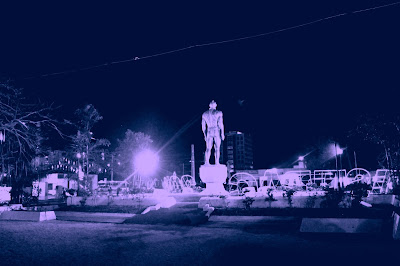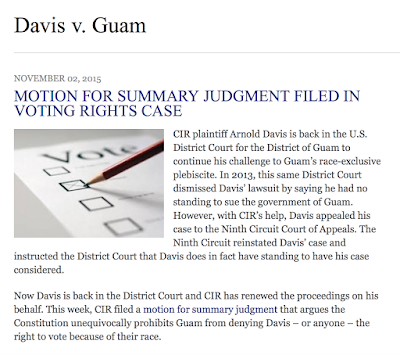Tales of Decolonization #15: Media Discoveries

Every few years the issue of decolonization in Guam is taken up in a national or international context. This is always an interesting thing to witness, as so much of it depends on the attitude of the journalist. Guam is not something well-known in any context that is not centered around US military bases, Spam consumption or the travel of Japanese tourists. So, whenever a journalist has to take up the issue of covering Guam, either for a single instance or become the "beat" reporter for US territories, or the Western Pacific or for something else, it can be interesting to observe. Older analysts have referred to the constant rediscovery of Guam in this way, as every new journalist that is tasked with covering Guam has to undergo a short or very short process of learning about it and then making it known to their reading/viewing public. Sometimes they take a securely American position in their crafting of their narrative, and as such Guam is simply a forgotten or disres...




